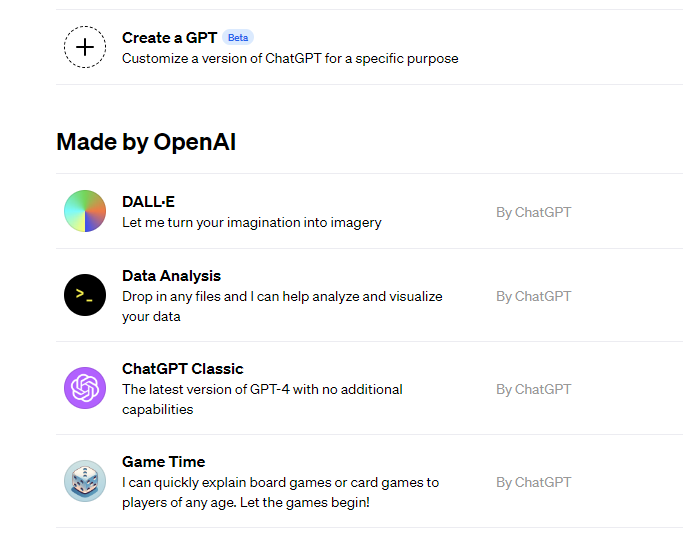Published on: June 20, 2023 Updated on: February 1, 2024
Why Learn AI? Studying the Technology of the Future
Author: Inge von Aulock

Spears gave way to guns and muscles to machines. Human Intelligence, our oldest and sharpest tool in the box, now faces a serious challenge from artificial intelligence. 42% of individuals fear they will be replaced by an algorithm. Some might be right, but this doesn’t have to be the case for you. All technological revolutions have their heroes, and this time you can be one of them.
In this article, we’re going to take a look at some of the top answers to the question, ‘Why study artificial intelligence?’ We’ll also learn about the many different ways you can become an expert in AI, turning your fears into passion around the technology that will define our future. Read on to learn how to take the reins of the AI tools revolution, rather than be trampled by it.
What is artificial intelligence? The fundamentals
To answer the question, ‘Why study artificial intelligence?’ we should first know what it is. Artificial Intelligence (AI) refers to the part of computer science that focuses on building machines that can do everything we can with our brains. The aim is not just to make them as clever, but eventually much brighter and faster than human intelligence.
There are a few different definitions you should know:
- Narrow AI: Also known as weak AI, Narrow AI is made to do one or two specific tasks.. Examples include speech recognition systems, image recognition algorithms, recommendation engines, and self-driving cars.
- General AI: A type of AI that is designed to possess a broad range of intellectual capabilities, able to perform tasks that would normally require human intelligence.
- Superintelligent AI: Artificial intelligence systems that far surpass even the most capable human intelligence.
Machine learning and deep learning are also important subsets of artificial intelligence:
- Machine learning: Algorithms that can learn by themselves, often using big data sets to improve efficiency and accuracy over time.
- Deep learning: Machine learning based on human neural networks to perform complex tasks such as natural language processing.
What does it mean to study artificial Intelligence?
People’s answer to why they aren’t learning artificial intelligence is often that they don’t have a computer science or engineering background.
Technical knowledge in areas like data science is the bread and butter of the future. But other forms of learning could be the jam on top. Learning about AI can be approached in a number of different ways:
- Technical AI skills
- Understanding applications of AI in your industry.
- Ethics and regulation of artificial intelligence
| Type of learning | What you’ll be learning |
Technical AI skills | Programming language (often Python) Mathematics and statistics Data-analytics Robotics |
Understanding applications of AI in your industry | Fundamentals of AI concepts such as machine learning Applications of AI in your specific industry Learning about specific artificial intelligence tools. |
| Ethics and regulation of artificial intelligence | Fundamentals of AI concepts, such as machine learning Applications of AI in your specific industry Learning about specific artificial intelligence tools. |
Studying artificial intelligence is accessible
The field of artificial intelligence is very relevant in today’s world so, unsurprisingly, there is an artificial intelligence course around every corner. In fact, the number of courses teaching you how to build and deploy AI systems at an undergraduate level has increased by 102% in the last four years.
Beyond this, there are many different types of resources to choose from, which also link up to the different ways of learning AI already mentioned.
Take a look at the following options:
- Online-courses and tutorials
- Bachelor’s or master’s degrees
- PHDs
- Data science boot camps
Secure high-demand skills and financial security
Another compelling answer to why you should study artificial intelligence is that doing so can provide you with a lucrative and stable career path.
- The artificial intelligence market is forecast to grow 1000% between 2023 and 2030.
- By 2030 this market could become worth $15 trillion globally, larger than China and India’s economies combined.
This means that artificial intelligence engineers are, and will continue to be, in extremely high demand. Salaries are also high:
- In the United States, the current median base salary for an AI engineer is $128,756.
- In the UK, the median salary for Artificial intelligence and Machine learning developers is currently £55,000, and the highest salaries pay around £85,000 a year.
Gain a diverse range of career opportunities
The number of jobs requiring knowledge of AI is expected to increase by 75% over the next five years. Artificial intelligence will be used in almost all areas of work. From forestry and farming to finance and flying. These industries will require technical engineers to build AI and specialists who can assess where to implement AI in a business.
You might be someone who can’t make up your mind about which sector to work in or someone who constantly changes interests. If so, there’s a great reason why you should study artificial intelligence. More than any other area of expertise, AI gives you freedom in choosing where you devote your energy.
Solve real-world problems
Artificial technologies are incredibly powerful tools that can be used to solve major real-world problems. AI programs are already being used in several areas to deliver solutions that humans aren’t capable of alone, for example:
- Analyzing poverty-stricken areas in Africa with algorithms that detect low-light areas.
- Aiding conservation by tracking and analyzing the movements of endangered species.
- Battling food waste by analyzing real-time weather forecasts and traffic data.
If you want to make a positive difference, one of the most impactful ways you can do so is by developing expertise in artificial intelligence.
Develop your creative skills with cutting-edge tools
AI is not only good for solving real-world problems, but it’s also being used for creative applications in various fields. Some examples of this are below:
- Produce anime art and characters with tools like Deep Anime
- Generate novel ideas and structures with NovelAI
- Design digital avatars with tools like Kaiber AI to perform and act in videos
- Create paintings with Apple’s AI art app Starryai
Art has long been seen as a unique part of human intelligence, and this is why AI systems in creative industries are so feared. However, if you know how to wield them, these algorithms can help you streamline the creative process and give you the power to make your wildest projects a reality.
Help understand AI applications in your field
The study of artificial intelligence isn’t just for those looking to become Alexa software engineers for Amazon or to design chatbots for Microsoft. Whatever the field you work in, there will be an application for AI solutions.
Many courses cover general AI concepts and the role it plays in specific fields, such as:
- Healthcare
- Manufacturing
- Travel
- Marketing
Studying artificial intelligence this way requires less investment than learning technical skills like building machine learning algorithms. Instead, you learn about applications of AI that can fit into your industry and which tasks can benefit from automation.
Studying AI will help you do your work more efficiently and effectively. Whether you are a healthcare practitioner, a graphic designer, or a writer, AI research can help you better understand your business and become better at your job.
Save the future of humanity
This is another example that doesn’t always require technical skills in artificial intelligence. The power of AI is tremendous, but that means it also has the potential to be dangerous. The skin tone and gender biases that machine learning algorithms have produced are well known. So are the cybersecurity challenges and dangers that accompany deep fakes. On the even more dramatic end of the spectrum, some experts warn that AI technologies might destroy humanity.
As such, there is a great need for people with an understanding of both AI concepts and social issues to advise on the regulation of this new tech. Not only is this type of learning great for those without technical skills, but by studying the ethics of artificial intelligence, you could be doing your part to guard against its more dangerous elements.
Courses that teach AI ethics cover areas such as:
- Social impacts and implications of artificial intelligence.
- Responsibilities of corporations and government in deploying AI.
- The impact of AI on inequalities of resources and on power in the workplace.
- Potential biases in big data used by machine learning algorithms.
- Identifying limits in AI decision-making.
- Cybersecurity challenges related to AI.
Study artificial intelligence for studying’s sake
The study of artificial intelligence is hugely intellectually stimulating, and interesting enough that it’s worth pursuing for curiosity’s sake. With so many fears about how AI will develop, there is nothing more relevant than thinking about its potential effects on society. So if your mind works philosophically, then studying artificial intelligence could be an effective way to put this to use.
On the other side of the coin, if your forte is problem-solving, then pursuing AI studies is also incredibly relevant. In working with AI, problem-solving and critical thinking skills will be used to:
- Identify what problems are best suited for AI
- Fix issues in AI systems
- Design AI to solve specific problems
Whether you’re a deep thinker or a technical problem solver, the AI studies are relevant for piquing your curiosity and putting your mind to good use.
AI related jobs
A great motivator for learning artificial intelligence is the successful career you will most likely have at the end of your studies. AI professionals can pick from plenty of different industries within the field, and with the ever-growing technology, this will only ever improve.
Data analysis
Data is what drives businesses. And not just businesses. Almost every aspect of our lives can be described, explained, and made sense of with data.
However, we need those who can use AI technology to analyze big data and draw insights from it to actually use the information.
Data analysts can use their learned skills to dive into any industry they like. From government to space centers, there will always be a need for a data analyst.
Develop AI algorithms
Deep learning and machine learning artificial intelligence isn’t self aware. It doesn’t train itself or set its own parameters. Instead, we need human developers to create AI algorithms. Without these people, artificial intelligence would cease to exist!
A competent grasp of data science and coding skills is essential to develop AI algorithms. But when you do have this, you’re going to be in high demand! After all, all AI tools need an initial algorithm.
Robotics engineer
When you learn artificial intelligence, it can feel like you’re always staring at a computer or some code. So, it’s easy to forget how cool real-world applications can be.
And, one of the coolest, is in robotics. This fast-growing industry is one of the most competitive branches of AI to work in, but when you get there, it’s definitely worth it. See your years of studying literally come to life before your eyes!
Final thoughts
So, why study Artificial intelligence? Whether you are interested in becoming a data scientist, machine learning engineer, lawmaker, or artist, there is a place for you in the world of AI. Seek out artificial intelligence courses, tutorials, and degrees that align with your interests and goals.
By doing so, you can become hands-on in the development of AI, shaping its responsible implementation, and becoming part of a transformative force that has the potential to do great things for humanity.
Have you had experience studying Artificial Intelligence? Do you agree with our reasons why learning AI isn’t just for software engineers and data scientists? Then keep up with the latest advancements by following Top Apps.
Inge von Aulock
I'm the Founder & CEO of Top Apps, the #1 App directory available online. In my spare time, I write about Technology, Artificial Intelligence, and review apps and tools I've tried, right here on the Top Apps blog.
Recent Articles

Artificial Intelligence (AI) is everywhere, but for many, it remains a mystery. What exactly is AI, and how does it impact our daily...
Read More
Interested in sharpening your AI knowledge base? We have all the best advice for staying ahead of the latest AI innovations and trends...
Read More
Learn how OpenAI's GPT Builder transforms coding, content creation, and more. Uncover its user-friendly side and dive into a future of AI accessibility...
Read More